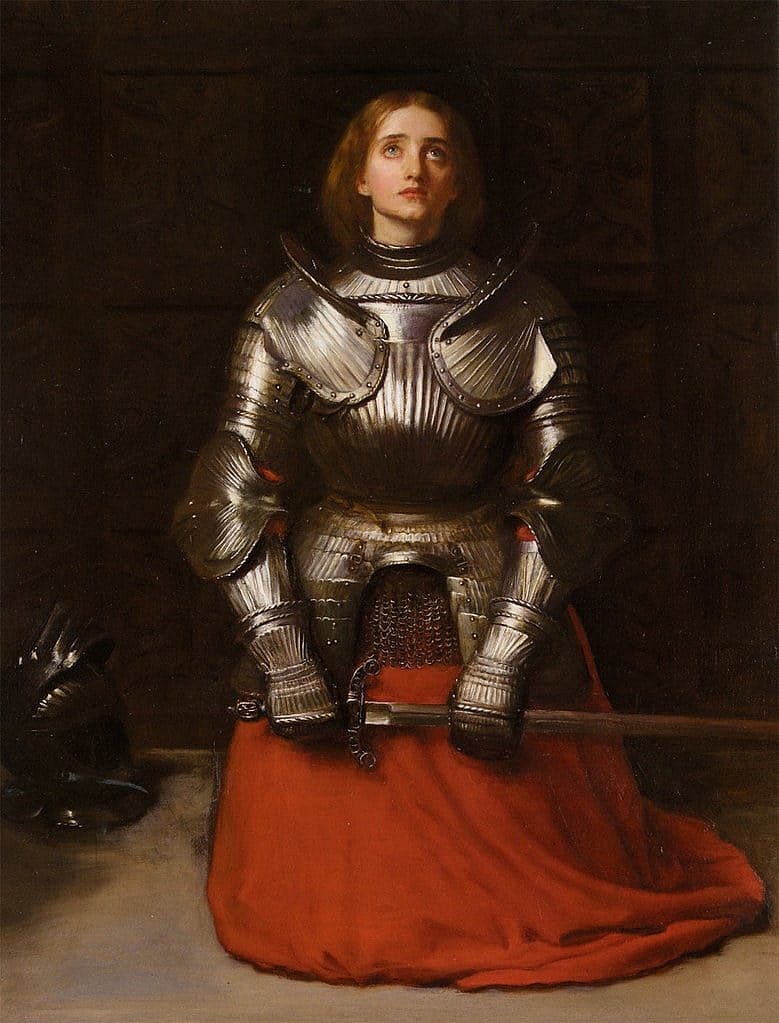Joan of Arc To Be Portrayed As “Non-Binary” And “Questioning The Gender Binary” In New Play ‘I, Joan’

The continuing march of modern day critical gender theory has claimed yet another victim, this time as a new play from Shakespeare’s London Globe Theatre is set to portray historical French icon Saint Joan of Arc as a non-binary individual who finds her strength by “questioning the gender binary”.

RELATED: Jodie Turner-Smith Addresses Playing Race Swapped Anne Boleyn
Written by British playwright and actor Charlie Josephine – whose bio notes that they are particularly passionate about “stories that centre working class women and queer people” – and helmed by Ilinca Radulian (co-director, Henry VI, Globe Theatre), I, Joan is described by its creators as “a powerful and joyous new play which tells Joan of Arc’s story anew.”

“The men are all fighting, again,” begins an official synopsis of the play. “An endless war. From nowhere, an unexpected leader emerges. Young, poor and about to spark a revolution. This is Joan.”
“Rebelling against the world’s expectations, questioning the gender binary, Joan finds their power and their belief spreads like fire,” it continues, before inviting audiences to “Join us in the wooden ‘O’ and feel the heat of the sun and the pulse of Joan’s passion.”

“With open hearts and raised voices, dance and cheer with us as we rediscover Joan’s story,” concludes the synopsis. It’s alive, queer and full of hope.”
In keeping with this reinterpretation of the historical figure, Joan will be portrayed on stage by non-binary actor Isobel Thom.

Attempting to head off the inevitable backlash to I, Joan‘s premise, the venue’s artistic director, Michelle Terry, released a statement adamantly declaring, “We are not the first to present Joan in this way, and we will not be the last.”
“Regarding the use of pronouns, ‘they’ to refer to a singular person has been traced by the Oxford English Dictionary to as early as 1375, years before Joan was even born,” she added, disingenuously and seemingly intentionally misrepresenting the issue. “Regardless, theatres do not deal with ‘historical reality’. Theatres produce plays, and in plays, anything can be possible.”

Terry then argued, “Shakespeare did not write historically accurate plays. He took figures of the past to ask questions about the world around him. Our writers of today are doing no different, whether that’s looking at Ann Boleyn, Nell Gwynn, Emilia Bassano, Edward II, or Joan of Arc.”
“It was no accident that Shakespeare moved his playhouse beyond the jurisdiction of the London City Walls,” she continued. “He wanted to play. Play with identity, power, with the idea of pleasure, and with all sides of an argument.”

“Shakespeare was not afraid to ask difficult questions as he imagined the lives of 1,223 characters,” the artistic director asserted. “He represented an extraordinary range of diverse perspectives and identities, and we are all still enjoying his work over 400 years later. Shakespeare was not afraid of discomfort, and neither is the Globe.”\
Concluding her statement, Terry affirmed, “For centuries, Joan has been a cultural icon portrayed in countless plays, books, films, etc. History has provided countless and wonderful examples of Joan portrayed as a woman. This production is simply offering the possibility of another point of view. That is the role of theatre: to simply ask the question ‘imagine if?’.”

Notably, not only does this gender-swap of Joan impose contemporary gender politics upon the historical figure, but it also erases the very thing that gives the story its inspirational weight: her female identity.
Born to French Roman Catholic peasants in 1412 amidst a period of warfare between her country and England, Joan’s youth saw her regularly presented with visions of various Saints, including Saint Michael, Saint Margaret, and Saint Catherine.

Eventually, these messengers related to Joan a summons from God, wherein he called upon her to ride to Charles VII’s side and support him in keeping France out of English hands.
Following a meeting with the future King of France, Joan was sent to aid the French relief army in the siege of Orléans, which by this point in her life had been raging for roughly five months.

Upon her arrival at the front, her presence caused a swell of morale amongst her fellow countrymen, prompting the tide of battle to quickly turn in favor of the French.
Joan would then proceed to ride with the French army through a number of further sorties, eventually coming to be regarded as somewhat of an unofficial commander – a role that in this time period would have otherwise been barred to her due to her gender.

However, her time on the battlefield would come to an end in May 1430 when her unit was defeated during the siege of Compiègne, a loss which would result in her being taken prisoner by her Burgundian opponents and later sold by her captors to the English.
Once in English hands, Joan would be put on trial for Heresy in a somewhat ‘kangaroo court’ made up of those who considered her to be a perpetual thorn in their country’s side, with her accusers pointing to her claims of visions from God and her penchant for wearing men’s clothing in order to move undisturbed throughout the lands as two of the biggest pieces of evidence regarding her blasphemous ways.

Inevitably found guilty, Joan was ultimately sentenced to death by the English and subsequently burned at the stake for her accused crimes.
Unfortunately for the English, her execution did little to tarnish Joan’s contributions, as not only did the momentum she sparked eventually give way to a full French victory in the Hundred Years’ War, but she was also crowned an official virgin Saint of the Catholic Church in 1920.

I, Joan runs from August 25th – October 22nd at the Globe.
